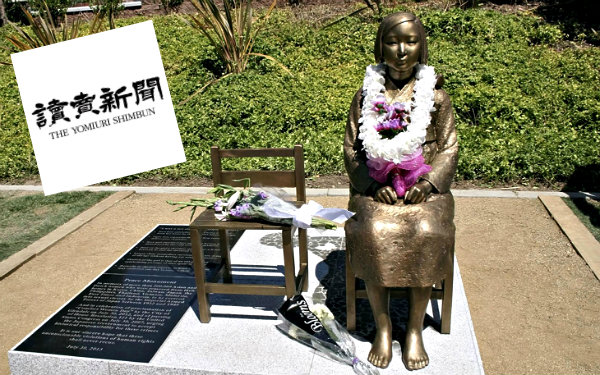Tokyo – Japan’s largest circulating publication and conservative newspaper, Yomiuri Shimbun, released an apology Friday, November 28, for using the terminology “sex slaves” in pertaining to the women who were impelled by the Japanese army into their military-controlled brothels during the Second World War.
The publication, in articles published in both Japanese and English, stated that the use of the phrase “sex slaves” was incorrect. Yomiuri said that the term inappropriately suggests that the women, composed of several nationalities and are known metaphorically as “comfort women”, were recruited against their will and were coerced to cater to the sexual needs of the Japanese soldiers in the WWII-era.
In its apology, the conservative newspaper further pointed out that the phrase “sex slaves” and the other expressions similar to the aforementioned were misleading. It added that it only used the the terminology as their non-Japanese readers find the expression “comfort women” hard to understand.
Aside from the term “sex slaves”, The Daily Yomiuri [Yomiuri Shimbun’s English edition] also wrote that their apology includes other verbalization which defined that the “comfort women” were “‘forced into prostitution by the army’ as if coercion by the Japanese government or the army was an objective fact”.
The newspaper went on to identify the 97 articles which contained the phrase “sex slaves” and similar terminologies published between 1992 to 2013.
The Yomiuri stated that it had not used the term “sex slaves” in its Japanese-language articles as the Japanese people understood the expression “comfort women”. The recent apology the publication released is part of its campaign to correct what it views as an unjustifiable negative portrayal of Japan and its behaviors during the Second World War.
Long Standing Battle Against the Expression
Long before the conservative newspaper issued its apology, Japanese Prime Minister Shinzo Abe had already sought to revise the apology issued by former Japanese PM Kono to these “comfort women” in 1993. However, he did not push through with his intent after South Korea and other countries loudly protested against it.
Aside from that, the Prime Minister, along with other conservative lawmakers, have long lobbied against using the term”sex slaves” to pertain to the women who worked in Japanese military brothels during the WWII-era. Their argument is that these women were not forced to provide their services.
While an investigation regarding this matter was conducted way back in the early 1990s with it concluding that many of those working as “comfort women” were recruited by coercion with the government and military officials often having direct involvement and that many lived in misery in an intimidating and violent atmosphere, conservatives have argued that there were no proof found about these accusations in existing military documents, thus, these couldn’t be established as facts.
It can be remembered that the Japanese Imperial Army put up “comfort stations” in several of their occupied countries and that the term “comfort women” is a euphemism for the word “prostitutes”.
Many of these “comfort women” came from Korea, China and the Philippines as well as other Japanese-controlled nations like Thailand, Burma and Hong Kong.
